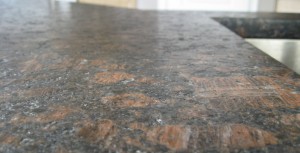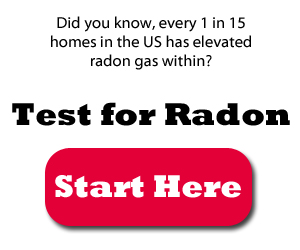Granite countertops can actually release trace elements of the deadly and radioactive gas radon. Since radon is the second leading cause of lung cancer, which has an extremely high mortality rate, that’s more than a little disconcerting.
Of course, the United States Environmental Protection Agency has deemed most granite safe. Despite the fact that granite based countertops do release radon, it’s apparently very little – not enough to make a significant difference. That being said, how much radon is released depends on the type of rock used. The EPA does recommend that homeowners get their countertops tested if they feel there may be an issue.
With all this information out in the open, just how dangerous are granite countertops? Is there an immediate threat or not?
Radon and Granite Countertops: Dangerous or Not?
All natural materials such as stone, minerals and soil contain trace amounts of radioactive elements. These radioactive elements are called NORMs for short, or Naturally Occurring Radioactive Minerals. This means that at any given time, there are lots of things around us releasing small amounts of radioactive elements.
If we took that definition and listed every item in existence that releases radioactive material it would be seemingly endless. It includes non-plastic dishware, natural gas, phospate fertilizers and vegetables that come into contact with them, silica based glass like mirrors or windows, and even granite.
That being said, the amount of radioactive material being released is not enough to cause serious harm. It will quickly dilute in a large quantity of healthy air, even inside a residence. If you were to take a geiger counter – a device used to measure radioactive objects – it would certainly show that these materials are irradiated. However, that’s no cause for alarm.
As the US EPA states:
“In a small number of homes, the building materials (e.g., granite and certain concrete products) can give off radon, although building materials rarely cause radon problems by themselves. In the United States, radon gas in soils is the principal source of elevated radon levels in homes.”
Long story short, granite countertops are not dangerous and do not pose an immediate threat to homeowners.
Radon and Countertops: How Do You Test?
To test the concentration of radon in granite countertops – and to truly find out if yours are a threat to your health or not – you can purchase activated charcoal testing kits. Unlike testing for radon the normal way, you cannot use a standard testing kit to measure your countertops – simply placing a standard test near a granite countertop is not going to provide accurate results. You cannot use a geiger counter to properly measure the radioactive radon being released from your counter either. You absolutely must purchase a testing kit made specifically for testing radon releasing surfaces.
In addition, the kits will come with two sample containers. One must be placed on or directly near the counter while the other must be placed at least twenty feet away. The collected air samples are compared, and the results of that comparison will reveal whether or not the counters are dangerous.
The likelihood of a granite countertop contributing to a significant abundance of radon in a residence is slim. Again, in most cases there is no immediate threat and the radioactive material that is being released is not harmful.



